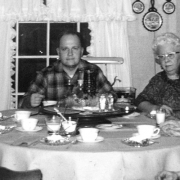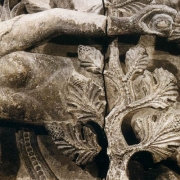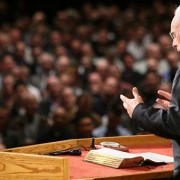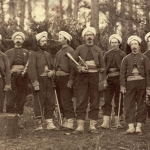Should adultery and homosexuality be illegal? Mohler weighs in
This article originally appeared at Baptist News Global on November 8, 2022.
“Should adultery be illegal? What about homosexuality?” These were questions posed to Al Mohler from a Christian schoolteacher who passed along ideas from a class discussion with his students. Four days before today’s mid-term elections, Mohler answered these questions in his daily Briefing.
Mohler identifies the teacher as someone named David, who teaches at “a classical academy in Whites Creek, Tenn.”
Based on a discussion his junior theology class had on the book of Romans, David wrote to Mohler: “Several questions that were asked during the discussion. Should adultery be illegal? Should homosexual marriage be illegal? If adultery should not be part of the law code, then why should Christians have a problem with homosexual marriage being legal?”
Mohler was delighted by these questions, responding: “David, you encourage me. Your class encourages me. Good question. And there’s an easy, quick fundamental answer to this. And when I say it’s easy, I mean in Scripture it’s easily found.”
“In short, Mohler dismisses the category of same-sex marriage as even existing and then toys with the idea of criminalizing adultery.”
In short, Mohler dismisses the category of same-sex marriage as even existing and then toys with the idea of criminalizing adultery. But as he plants these thoughts into the minds of his listeners, including children, he weaves his way through a series of false assumptions about marriage and adultery in the Bible and about the criminalization of adultery in history.
Where is marriage in creation?
Mohler begins his “easily found” answer, saying: “In the Scripture you have marriage given as a part of God’s gift to us in creation. Adultery is a sin against marriage, but it is not a redefinition of marriage. And that’s what’s important. Adultery actually is only adultery because it violates a definition of marriage that is given to us in Scripture. One man, one woman exclusively for one lifetime. Adultery violates marriage. It doesn’t repudiate it. Same-sex marriage repudiates marriage. It is a denial of the very essence of marriage. Oddly, when we use the word ‘adultery,’ it only makes sense because we do know what marriage is. But when you try to redefine marriage itself, that’s where the problem becomes even more acute.”
The first problem with Mohler’s answer is that sexuality has existed for 1.2 billion years, long before the Bible was written two to three thousand years ago. If we want to develop a theology of sexuality that’s rooted in the creation, then we have to accept the far more ancient, evolving story of sexuality out of which we’ve emerged.

Al Mohler
The second problem with Mohler’s answer is that marriage in the Bible is not found in the creation narratives of Genesis. In The Making of Biblical Womanhood, Beth Allison Barr points out that “early English Bible translations did not accurately reflect Hebrew words or relationship but instead reflected early modern English sensibilities. Women became ‘wives’ in English Bible translations, even when they would not have been considered wives in the biblical world. The word marriage never appears in the Hebrew text.”
Barr points out that the Hebrew word translated “wife” in Genesis 2:24, where a man cleaves to his wife, is the same word for “woman” in verses 22 and 23. She also notes that the 1611 KJV inserted the subheading “Institution of Marriage” prior to these verses. But in reality, wives and marriage never were mentioned in the Hebrew language.
Where in the Bible does it clearly define biblical marriage as “one man, one woman exclusively for one lifetime”? And who in the Bible practiced this definition?
Defining adultery in the context of biblical marriage
Despite these issues, Mohler is correct in connecting the definition of adultery to what marriage is. But unfortunately for Mohler, marriage in the Bible looks nothing like marriage today.










Leave a Reply
Want to join the discussion?Feel free to contribute!